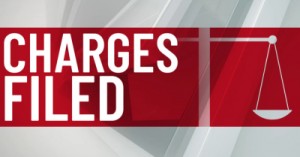In 2020-21 there were 20,599 incidents classified as serious across all childcare services, the Australian Children’s Education and Care Quality Authority data shows. This ranges from the death of a child (there were none in that year) to serious injury, trauma or illness, incidents where emergency services have to be called, or children being locked in or out or going missing.
The year before, there were 16,632 serious incidents.
Data from the national quality regulator show the number of serious incidents at childcare services – such as broken limbs, asthma attacks, allergic reactions, or children going missing – has jumped by a quarter.
The rate of serious incidents was relatively flat in daycare centres over recent years, hovering between 133 and 138 incidents per 100 centres, but jumped to 173 incidents per 100 centres in 2020-21.
According to a study conducted by the United Workers Union, which represents childcare educators, occurrences that resulted in sanctions occurred disproportionately at for-profit childcare centres, and the problem was getting worse.
The spike in serious events has been connected by Labor to a reduction in federal funds for safety and quality inspections. The assessments are carried out by state and territory regulatory agencies, however, they used to be funded by the Commonwealth under a national partnership that terminated in 2018.
“Every Australian family should be concerned that serious safety incidents in child care have exploded under the Morrison government,” Labor’s childcare spokeswoman Amanda Rishworth said.
“When the Liberals cut funding to safety and quality inspections it has an impact. This isn’t good economic management – it’s negligence. What could be more important than children’s safety?”
Mr Robert said states and territories were responsible for regulating childcare services and the commonwealth had made a record investment in the sector, including $46 million over four years to ACECQA to oversee the national quality framework.
The federal government spends more than $10 billion on early childhood care each year, with the bulk of that going to fee subsidies.
There are almost 13,600 approved services.
In the year to March 2019 there were more than 3000 assessments of childcare services done, and the following year almost 3500 were completed.
During the pandemic, however, the number of assessments decreased to prior levels, with just over 2000 completed in 2020 and another 2255 in the following 12 months. During these years, COVID-19 regulations limited assessors' ability to visit childcare centres.
Less than half of childcare services have had their most recent assessment within the past three years.
The proportion of services exceeding quality standards peaked in 2018 at 32 per cent and has slowly dropped off in the years since. However, the proportion rated as “working towards” standards has steadily declined since 2013, indicating more are meeting expectations.
The government’s Starting Blocks website, which helps parents find and compare childcare services, says the goal of the quality assessments is to “drive continuous improvement and keep information for families and communities accurate and up to date”.
According to regulator ACECQA, one out of every seven lengthy childcare centres currently has a waiver in effect to exempt it from legal standards for educator credentials and headcount.
In Queensland, almost one in four centres had a waiver allowing them to continue operating without meeting staffing requirements.
The situation has worsened in recent months, with 14.3 per cent of centres holding a waiver as at April 1, compared with 13.6 per cent in January.
Education department officials have said the majority of staffing waivers relate to not having a degree-qualified early childhood teacher, rather than a reduced number of adults at a service.
A workforce strategy released by ACECQA last September noted attracting and keeping a high-quality workforce was a significant and increasing challenge for the sector.
Before the election, childcare sector advocacy group Thrive by Five, an offshoot of Andrew and Nicola Forrest’s Minderoo Foundation, urged the federal government to fund a 10 per cent pay rise to address critical staff shortages.
Reference:
‘Never Happen Again’: States Told To Fix Childcare Transport Rules, The Sydney Morning Herald







 On 10 December 2025, the Fair Work Commission issued a major determination affecting the Children’s Services Award 2010 (MA000120). These changes form part of the
On 10 December 2025, the Fair Work Commission issued a major determination affecting the Children’s Services Award 2010 (MA000120). These changes form part of the Over the next five years, educators across the sector will see steady, structured wage increases designed to lift pay to the new benchmark rates for
Over the next five years, educators across the sector will see steady, structured wage increases designed to lift pay to the new benchmark rates for